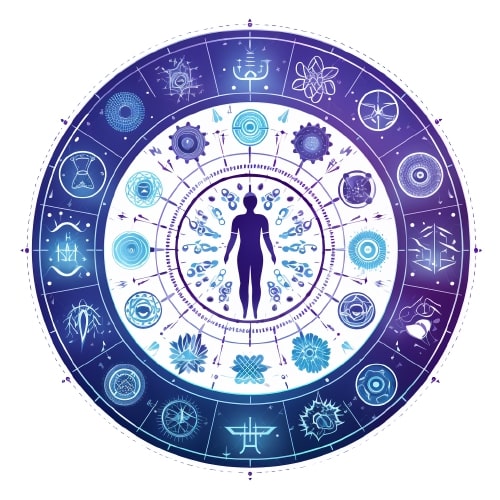
Intimacy and sex are essential components of human relationships, often serving as a means of connection and expression. However, for individuals with cancer, the experience of intimacy can be shaped by unique emotional needs and physical challenges.
In this section, we will explore the profound emotional connection experienced in intimate moments with cancer. We will delve into the unique needs and love language of individuals battling cancer and how it can enhance intimacy on a deeper level.
Key Takeaways:
- Sex with cancer can be a deeply emotional experience.
- Understanding an individual’s love language can enhance intimacy.
- Cancer treatment can bring about sexual side effects and emotional challenges.
- Effective communication and vulnerability are essential to nurture emotional connection.
- Supporting self-confidence and addressing fear and anxiety can improve intimate relationships.
Understanding Cancer’s Impact on Intimacy
Intimacy can be challenging for anyone, but for individuals with cancer, it can be especially difficult. Cancer and intimacy issues often go hand in hand, with treatment side effects impacting sexual function and emotional well-being. It’s important to understand how cancer can impact intimacy so that individuals and their partners can find ways to enhance their relationship and address any challenges that may arise.
Cancer and Intimacy
Cancer can impact intimacy in a variety of ways, both physically and emotionally. Treatment side effects, such as fatigue, pain, and changes to sexual function, can make it difficult to engage in sexual activity. Emotional challenges, such as anxiety and depression, can also impact intimacy. It’s important to recognize that these challenges are common and that there are ways to address them.
Sexual Side Effects
One of the most significant challenges for individuals with cancer and their partners is dealing with the sexual side effects of treatment. These can include erectile dysfunction, vaginal dryness, and loss of libido. These side effects can be temporary or ongoing, and they can impact self-confidence and self-esteem, as well as the emotional connection between partners.
Emotional Challenges
In addition to physical side effects, cancer can also impact emotional well-being. Anxiety, depression, and fear can all impact intimacy, making it difficult to feel emotionally connected to a partner. It’s important for individuals with cancer and their partners to communicate openly about their feelings and to seek support when needed.
“Cancer can impact intimacy in a variety of ways, both physically and emotionally.”
Nurturing Emotional Connection
Intimate moments for individuals with cancer can be emotionally charged. Therefore, fostering emotional intimacy becomes a crucial aspect of maintaining satisfying and fulfilling relationships. Communication is key when it comes to enhancing emotional connection. Honest and open communication helps partners to understand each other’s needs, feelings, and limitations. Effective communication also helps to bridge gaps created by cancer-related challenges.
Developing trust is another critical component of nurturing emotional connection. Trust is built over time through mutual support and respect. It is built on the foundations of honesty and reliability, which help to create a safe space for partners to express vulnerabilities. Vulnerability is a fundamental aspect of nurturing emotional connection. It means being authentic with oneself and one’s partner concerning emotions and needs, even when it feels uncomfortable or awkward.
Embracing vulnerability is not always easy, but it is a vital part of nurturing emotional connection. It requires each partner to be compassionate and understanding towards each other’s needs. It also means creating an environment where each partner’s concerns are validated, acknowledged, and addressed. By embracing vulnerability, couples can build deep and meaningful emotional connections as they go through cancer treatment.
While fostering emotional intimacy is critical, navigating sex with cancer is not always easy. It requires partners to be patient, understanding, and supportive of each other’s comfort levels. Finding ways to make sex comfortable and enjoyable for both partners can also help to deepen emotional intimacy. Couples can experiment with new positions, try out different forms of stimulation, or engage in non-sexual intimacy activities such as cuddling or massage.
Emotional intimacy is a vital aspect of sex with cancer, and it requires effort from both partners to nurture it. Effective communication, building trust, embracing vulnerability, and engaging in non-sexual intimacy activities are all ways to build and maintain emotional connection throughout the cancer journey.
Exploring Love Language
Cancer can affect every aspect of a person’s life, including their love language. Understanding and meeting the unique love language needs of individuals with cancer can enhance intimacy and emotional connection.
Love language refers to the ways in which people express and experience love. According to Dr. Gary Chapman, there are five primary love languages: acts of service, words of affirmation, physical touch, quality time, and receiving gifts. Each person has their own unique love language, and understanding and meeting these needs can help to strengthen relationships.
For individuals with cancer, their love language may change or become more pronounced due to their diagnosis and treatment. Some may find that acts of service, such as helping with daily tasks or providing care, are particularly meaningful. Others may benefit from words of affirmation, such as verbal reassurance and encouragement.
Physical touch is another important aspect of intimacy for many people. However, cancer and its treatments can bring about physical changes and discomfort that may impact sexual intimacy. In these cases, finding alternative ways to express physical touch, such as hugging or holding hands, can help to maintain emotional connection.
It’s essential to have open and honest communication about love language in intimate relationships, especially in the context of cancer. Partners should take the time to understand each other’s love language and find ways to fulfill these needs, even if sexual intimacy is not always possible.
Overcoming Body Image Challenges
Cancer can pose significant challenges to an individual’s body image, affecting their self-confidence and ability to feel comfortable during intimate moments. This can lead to feelings of shame and embarrassment, making it challenging to fully engage in intimacy.
However, with the right support and mindset, it is possible to overcome these challenges. One way to achieve this is through self-acceptance, acknowledging and embracing one’s body as it is in the moment. This can involve reframing negative self-talk and focusing on positive affirmations that promote self-love and appreciation.
Partner support is also crucial in building self-confidence during intimate moments. Encouragement, reassurance, and gentle touch can help alleviate fears and anxieties, creating a safe and accepting space for intimacy.
In addition, exploring new ways to engage in intimacy can help shift the focus away from physical appearance and towards emotional connection. This can include sensory experiences such as massage or aroma therapy, or exploring non-sexual intimate activities such as holding hands or cuddling.
It is important to remember that body image challenges are a common experience for many individuals with cancer. Seeking support from professional counselors or support groups can also provide valuable resources and strategies for overcoming these challenges and fostering a healthier, more positive self-image.
Addressing Fear and Anxiety
It is common for individuals with cancer to experience fear and anxiety in intimate moments. The fear of recurrence or of being unable to perform sexually can create significant anxiety. This can, in turn, impact sexual function and emotional intimacy. The good news is that addressing these concerns can improve intimacy and confidence.
Emotional support and reassurance from partners are crucial in managing cancer-related fear and sexual anxiety. Open communication and vulnerability can lead to deeper emotional intimacy and understanding.
“Being able to communicate openly with my partner about my fears and insecurities has helped us to deepen our emotional connection. It has allowed us to focus on the emotional aspects of intimacy rather than just the physical.” – Karen, breast cancer survivor
Additionally, seeking professional help, such as sex therapy or counseling, can provide valuable tools and techniques for managing anxiety and enhancing intimacy. Healthcare professionals, such as oncologists and nurses, can also provide support and resources to address sexual concerns related to cancer treatment.
- Tip: Try mindfulness or relaxation techniques to manage anxiety and fear. Deep breathing or visualization exercises can help to calm the mind and body.
- Tip: Practice self-care and prioritize physical and emotional well-being. This can include exercise, meditation, or seeking therapy for emotional support.
- Tip: Remember that intimacy is not just about sex. Focus on engaging in non-sexual intimacy activities, such as cuddling, holding hands, or spending quality time together.
Seeking Professional Help and Support
When it comes to navigating the complexities of sex with cancer, seeking professional help and support can be incredibly valuable. There are a range of options available to help individuals with cancer and their partners address any challenges and improve their intimate relationships.
One option is sex therapy, which involves working with a qualified therapist to address sexual concerns. Sex therapists can provide a safe space for individuals to discuss any issues they may be experiencing, and can offer guidance and support on how to improve their sexual experiences.
Counseling is another option, and can be helpful for addressing emotional challenges and improving communication. Counseling can provide couples with strategies for improving their overall intimacy and strengthening their emotional connection.
Support groups can also be a valuable resource, offering a forum for individuals to connect with others who may be experiencing similar challenges. Support groups can provide a sense of community and understanding, and can offer practical tips and advice on how to navigate the challenges of sex with cancer.
It’s also important to remember the role of healthcare professionals. Physicians, nurses, and other healthcare professionals can offer insights into the unique needs of individuals with cancer and may be able to provide recommendations for additional support and resources.
Ultimately, seeking professional help and support can offer reassurance and guidance to individuals with cancer and their partners, helping them navigate the nuances of sex with cancer and maintain a strong emotional connection.
Redefining Intimacy Beyond the Physical
Physical intimacy is an important aspect of any romantic relationship, but when cancer enters the picture, priorities can shift. In fact, many individuals with cancer find that non-sexual intimacy can be just as fulfilling and meaningful as sexual intimacy.
One way to nurture emotional connection and intimacy in the absence of physical contact is to prioritize quality time. Engaging in activities together, such as cooking, reading, or playing games, can strengthen emotional bonds and create lasting memories.
Another way to cultivate non-sexual intimacy is to engage in intimacy activities that prioritize emotional connection and vulnerability. This can include sharing personal stories or dreams, practicing gratitude exercises, or simply holding each other and expressing love and appreciation.
Emotional connection is key to building intimacy, and it doesn’t always have to involve physical touch. By exploring non-sexual intimacy, individuals with cancer and their partners can deepen their emotional connection and foster a greater sense of closeness and support.
Conclusion
Sex with cancer can be a deeply emotional experience, driven by extraordinary needs and a unique love language. Cancer can bring about sexual side effects and emotional challenges, but nurturing emotional connection can enhance intimacy on a profound level. Effective communication, building trust, and embracing vulnerability are crucial in fostering emotional intimacy while overcoming body image issues and addressing fear and anxiety is equally important through emotional support and reassurance.
Seeking professional help and support from sex therapy, counseling, and support groups, as well as healthcare professionals, can be valuable in navigating the unique needs of individuals with cancer. It is important to understand that intimacy can also be redefined beyond physical gratification with non-sexual intimacy, including emotional connection, quality time, and intimacy activities that foster closeness.
Overall, understanding the emotional depths and unique aspects of intimacy can provide greater support in intimate relationships for individuals with cancer. By addressing the needs and challenges of individuals with cancer, we can create an intimate experience that is both fulfilling and supportive for everyone involved.
FAQ
Q: What can I expect in terms of emotional connection during intimate moments with cancer?
A: Individuals battling cancer often experience a deep emotional connection during intimate moments. The heightened awareness of mortality can lead to a greater appreciation for the present moment and a desire to connect on a profound level.
Q: How does cancer impact intimacy?
A: Cancer can have various impacts on intimacy. The sexual side effects of cancer treatments can affect one’s physical ability or desire for sexual activity. Additionally, individuals with cancer may face emotional challenges such as anxiety, body image issues, and fear related to their condition.
Q: How can I nurture emotional connection in the context of sex with cancer?
A: Nurturing emotional connection involves effective communication, building trust, and embracing vulnerability. Engaging in open and honest conversations about emotions, fears, and desires can deepen emotional intimacy and enhance the overall experience.
Q: What is the role of love language in sex with cancer?
A: Love language plays a crucial role in enhancing intimacy with cancer. Understanding and meeting the unique love language needs of individuals battling cancer, such as acts of service, words of affirmation, or physical touch, can deepen emotional connection and create a more fulfilling intimate experience.
Q: How can I overcome body image challenges in intimate moments with cancer?
A: Overcoming body image challenges requires self-acceptance and support from partners. It’s important to recognize that physical changes due to cancer or its treatments do not diminish one’s worth or desirability. Seeking support, practicing self-care, and engaging in open communication can help foster self-confidence and acceptance.
Q: How can I address fear and anxiety related to sex with cancer?
A: Addressing fear and anxiety involves open communication, emotional support, and reassurance. Sharing concerns with your partner and healthcare professionals can help alleviate anxiety. Emotional support, understanding, and reassurance can create a safe and supportive environment for intimate moments.
Q: What professional help and support options are available for sex with cancer?
A: There are various options for seeking professional help and support, including sex therapy, counseling, and support groups. Healthcare professionals specializing in cancer care can offer guidance, resources, and treatment options tailored to the unique needs of individuals with cancer.
Q: How can I redefine intimacy beyond the physical?
A: Redefining intimacy beyond the physical involves focusing on non-sexual forms of connection. Emotional intimacy, quality time spent together, and engaging in activities that foster closeness can enhance the overall sense of intimacy and strengthen the bond between partners.

































































